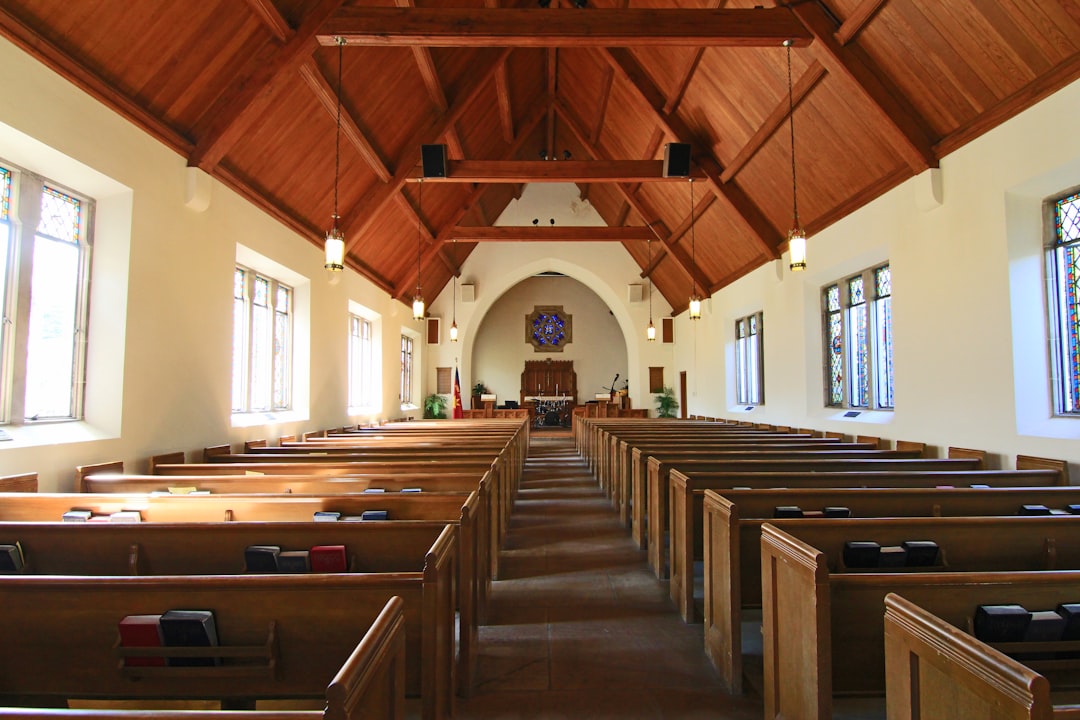Clergy abuse attorneys in Atlanta, GA, provide essential support to survivors of misconduct by religious leaders. They address psychological trauma, legal consequences, and reporting challenges within tight-knit communities. Recognizing behavioral changes and documenting incidents are crucial steps. Legal protections offer compensation for victims, while awareness programs empower both clergy and congregants to prevent abuse. Specialized attorneys guide survivors through complex legal processes, providing justice and access to healing resources, making them vital allies in recovery.
Understanding Your Rights: Navigating Clergy Abuse in Atlanta
In Atlanta, as across the nation, cases of clergy abuse have left profound impacts on victims. This article aims to demystify a complex issue by exploring various aspects of clerical abuse and its effects on Atlanta’s community. We delve into identifying signs of abuse within religious settings, understanding the legal rights of victims in Georgia, and the crucial role played by specialized clergy abuse attorneys in supporting survivors. Additionally, we provide resources for those affected by such misconduct.
What is Clergy Abuse and How Does it Impact Victims in Atlanta?

Clergy abuse, a sensitive and complex issue, refers to any form of misconduct or exploitation committed by religious leaders against individuals within their care or under their influence. This can include emotional, physical, or sexual abuse, and it has severe and lasting impacts on victims. In Atlanta, Georgia, where a significant number of houses of worship are present, clergy abuse attorneys play a crucial role in assisting those who have suffered such traumatic experiences.
The impact on victims is profound, often leading to long-term psychological trauma, loss of faith, and even legal consequences if the abuser faces criminal charges. Many survivors struggle with feelings of shame, guilt, or fear when considering reporting the abuse, especially within tightly-knit religious communities. Clergymen who have been accused of such crimes can face a daunting legal process, and having clergy abuse attorneys in Atlanta GA ensures victims receive skilled representation while navigating these challenging circumstances.
Recognizing the Signs: Identifying Patterns of Abuse in Religious Settings

Recognizing signs of abuse within religious settings is a critical step for individuals facing clergy abuse in Atlanta, GA. This can include behavioral changes in the victim, such as increased anxiety, depression, or sudden withdrawal from social activities and their faith community. It’s essential to look out for patterns—repetitive incidents that may be hard to pinpoint individually but become evident when viewed collectively. The dynamics of power and trust within religious institutions often enable abuse, making it crucial for both victims and observant friends and family to understand these signs.
Clergy abuse attorneys in Atlanta GA emphasize the importance of documenting instances of suspicious behavior and maintaining records. These can serve as vital evidence if a case goes to trial. Moreover, fostering open communication channels and ensuring that reporting mechanisms exist within religious organizations are significant steps towards prevention and intervention. Awareness programs and training sessions for both clergy members and congregants can play a pivotal role in recognizing and halting abuse early on.
Legal Rights for Victims: Understanding the Legal Framework in Georgia

In Georgia, victims of clergy abuse have specific legal rights and protections. If you’ve experienced sexual or physical abuse at the hands of a religious leader, understanding your rights is crucial. Clergymen and religious organizations in Atlanta are held to a higher standard due to the sensitive nature of their positions. This means that if an individual suffers harm while under the care of a clergyman, they may have grounds for legal action.
Seeking compensation for such trauma can be a complex process, which is why it’s vital to consult clergy abuse attorneys in Atlanta, GA. These legal professionals specialize in navigating the intricate laws surrounding clergy abuse and can guide victims through the system. They ensure that the rights of survivors are protected and help them pursue justice and closure.
The Role of Clergy Abuse Attorneys in Supporting Survivors

When facing clergy abuse, survivors often find solace and strength in seeking legal counsel from experienced clergy abuse attorneys in Atlanta, GA. These specialists are pivotal in advocating for victims’ rights and ensuring they receive the justice and support they deserve. They guide clients through complex legal processes, offering expertise in understanding state laws and relevant church policies regarding such sensitive matters.
Clergy abuse attorneys play a crucial role in protecting survivors by providing confidential consultations, helping them navigate reporting procedures, and representing their interests during legal proceedings. Their knowledge of the emotional trauma associated with clergy abuse enables them to offer compassionate support while pursuing appropriate legal avenues. This dual approach ensures that survivors not only receive justice but also have access to the resources needed for healing and recovery.
Resources and Support for Those Affected by Clergy Misconduct

For those who have experienced clergy misconduct, it can be a challenging and overwhelming time. It’s important to know that there are resources available to support survivors and help them navigate their options. Many organizations offer confidential counseling services, legal aid, and advocacy for individuals affected by clergy abuse. These groups provide a safe space to share experiences, offer guidance on legal rights, and connect people with qualified clergy abuse attorneys in Atlanta, GA.
One of the first steps after uncovering clerical abuse is to reach out to these support networks. Clergy abuse attorneys in Atlanta GA can help survivors understand their legal standing, explain potential avenues for compensation, and guide them through the process of seeking justice. These professionals are dedicated to advocating for those who have suffered at the hands of religious leaders, ensuring that their voices are heard and their rights are protected.





